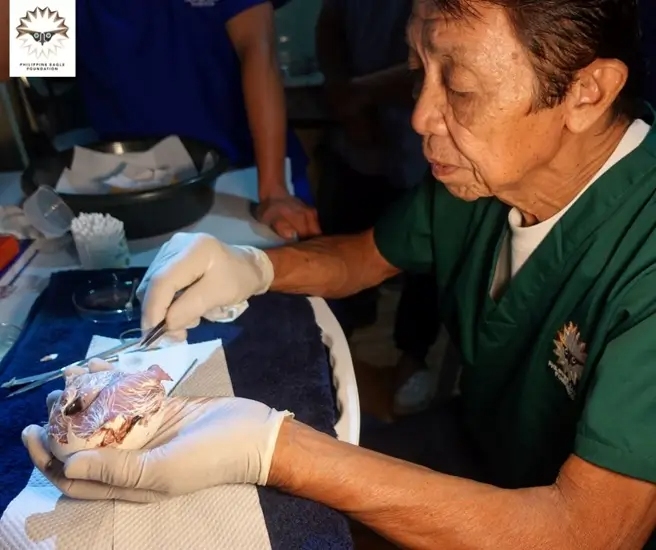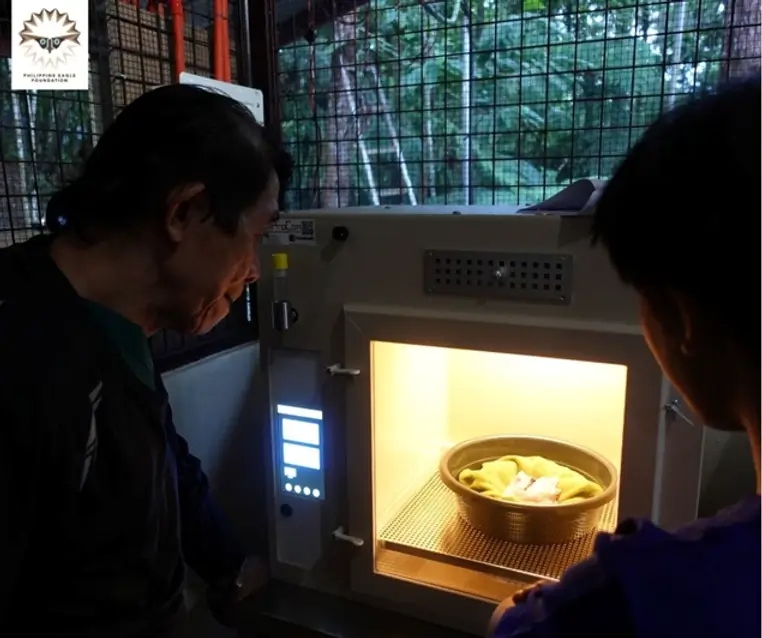New Davao sanctuary hatches its first Philippine Eagle chick
A miracle of life took place at the new National Bird Breeding Sanctuary (NBBS) in Davao City after they successfully hatched their first Philippine Eagle chick.
According to the Philippine Eagle Foundation (PEF), the baby bird hatched at the sanctuary located in Barangay Eden, Toril district on Nov. 11 and is considered a "major milestone for Philippine Eagle conservation."
The chick hatched after a 56-day incubation period. During this time, PEF helped it survive through assisted pipping through air space areas of the egg where the membrane was unattached, thereby preventing suffocation from excess carbon buildup.
The foundation explained that this is a "common risk when the hatching period extends beyond a safe duration."

"The decision to use the 'help out' method was not made lightly," said Domingo Tadena, NBBS Facility Manager and PEF’s conservation breeding expert.
"It was a calculated measure based on years of experience and the chick’s status during the later stages of incubation. Without our intervention, the risk of losing this hatching to suffocation was high. This chick’s survival represents not just a successful breeding cycle," he detailed.
Advanced equipment donated by Liberec Zoo in the Czech Republic also played a key role in providing optimal incubation conditions.
The chick was brought to life through "cooperative artificial insemination," with its parents being Pinpin, the female eagle who naturally incubated the egg for the first seven days, and Sinag, the semen donor who resides at the Philippine Eagle Center.
Pinpin laid the egg on Sept. 16 following an "intensive" breeding season that began in July.

PEF stated that the baby bird, which they identified as "Chick No. 30," represents a "new chapter in the fight to conserve the Philippine Eagle, a species found only in the Philippines and facing critical threats from habitat loss and hunting."
"This hatching marks a historic first for the NBBS, occurring just months after its establishment," Tadena said. "It proves that with cutting-edge technology, cross-cultural collaboration, and unwavering dedication, we can create new hope for the Philippine Eagle and ensure that future generations," he added.
Dennis Salvador, PEF’s Executive Director, added that the achievement is a testament to the challenges faced by breeding experts with regard to the country's national bird.
"They are not only difficult to pair, but they also only mature and become productive after a long time. One necessarily needs to invest time and resources to make it work. But more importantly, besides skill, knowledge and experience, it is the dedication and passion of our team that made this possible," Salvador said,
"We are deeply grateful to everyone who helped and continue to invest in our common mission," he added.
The National Bird Breeding Sanctuary meanwhile promised a safe environment for the chick where it can grow and develop into a healthy adult.


